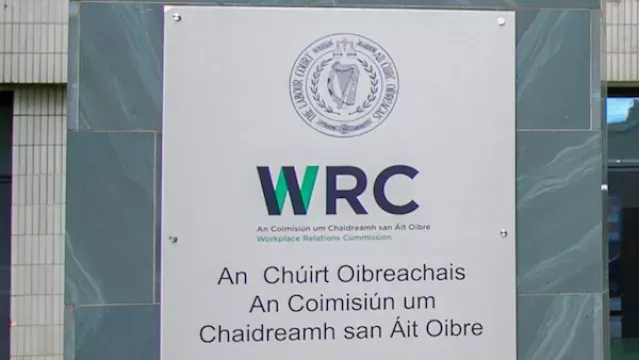Government Restrictions for Dublin
GOVERNMENT RESTRICTIONS FOR DUBLIN
Dublin has moved to Level 3, whilst the rest of the country has been placed on Level 2. Restrictions are once again put in place for workers in Dublin. The following are some initial considerations which employers will need to take account of;
WORKING FROM HOME
Employees will be required to work from home unless absolutely necessary to attend in person.
For many employers, working from home has continued throughout level 1 and 2 and so not much will change from their perspective. However, some employers will, once again, be required to ask workers to work from home.
In doing so, employers should ensure to give guidance to employees in relation to conducting risk assessments in relation to their work area, in line with the employer’s duty of care for the safety, health and welfare of their employees. Employers should be mindful of the impact of working from home again on some worker’s mental health and send out important reminders to staff in regards to any Employee Assistance Schemes or important contact details both internally within the Company and externally should they feel they require help.
LAY-OFF OR SHORT-TIME WORKING
Whilst we hope it will not be the case, employers should be ready for the possibility of further restrictions in the coming weeks and the impact that this may have on their business. Regrettably, some employers may once again be faced with the need to lay employees off or place them on short time working.
Should they wish to do so without the obligation to pay the employees, for the hours lost, there must be a relevant clause in their terms and conditions or have a previous practice of doing so. With that in mind, it is no harm for employers to now take the opportunity to review terms and conditions to ensure that the relevant clause is contained therein.
It is essential that employees are issued with Protective Notice as soon as reasonably practicable, advising of any possibility of lay-off or short-time working being introduced. If you are at risk then employers must ensure that staff are correctly notified of the specific measures if and when they are introduced, as soon as possible.
PANDEMIC UNEMPLOYMENT BENEFIT
Employers may want to highlight to employee’s that the Pandemic Unemployment Benefit continues to be available to all new entrants until December 2020.
THE NATIONAL WAGE SUBSIDY SCHEME
The National Wage Subsidy Scheme is also in place where an employee is being paid at least a gross wage of €151.50 a week which will be available to an employer if staff are either part time or placed on short time working.
SUSPENSION OF REDUNDANCY RIGHTS
The legislation on the rights of workers who are on lay-off or short-time working to claim redundancy, remains suspended until 30th November 2020.
REDUNDANCIES
Some employers have and may come to the unfortunate realisation that they no longer require certain employees, who are placed on lay-off, to return to the workplace and mistakenly believe that they can simply tell these employees that there is no more work. However, once an employee has obtained a years’ service with an employer, they are protected by the Unfair Dismissal Acts and therefore could take a claim against an employer for not following fair process and for unfairly (selecting) dismissing them. Such claims can result in awards of up to two years’ salary, dependent on loss of earnings.
It is for this reason that employers must ensure, if they are considering reducing their workforce, whether employees who are at work or are on lay-off or short time working, that fair process ensues.
For guidance and expertise on redundancy processes or any of the above, please contact the MSS HR Support team.
This update is provided by the MSS HR Support Service
FURTHER DETAILS ON THE UPDATE OR ABOUT OUR SERVICES MAY BE OBTAINED FROM:
JOHN BARRY/TARA DALY/ HUGH HEGARTY AT TEL: 01 8870690












